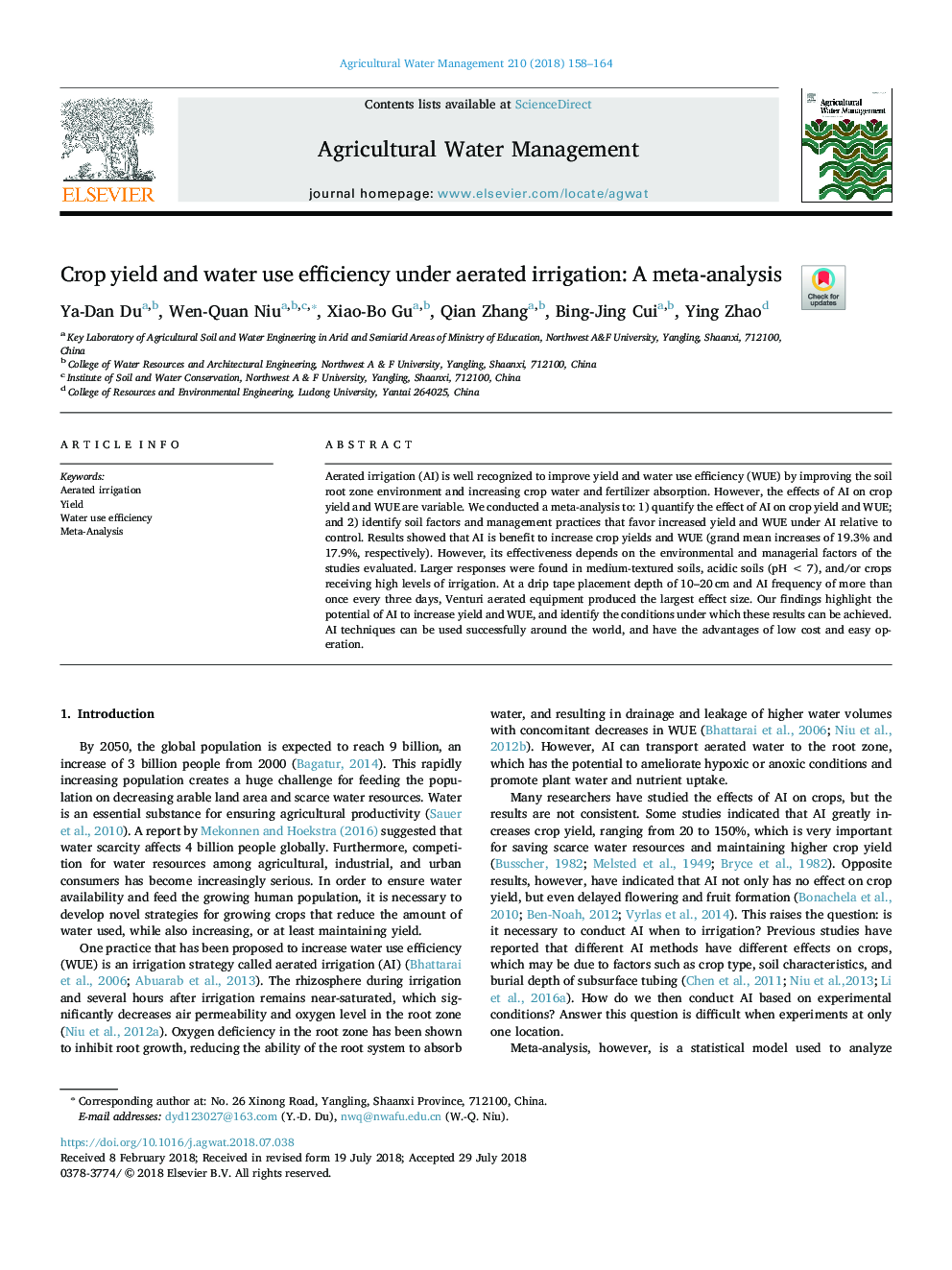| Article ID | Journal | Published Year | Pages | File Type |
|---|---|---|---|---|
| 8872718 | Agricultural Water Management | 2018 | 7 Pages |
Abstract
Aerated irrigation (AI) is well recognized to improve yield and water use efficiency (WUE) by improving the soil root zone environment and increasing crop water and fertilizer absorption. However, the effects of AI on crop yield and WUE are variable. We conducted a meta-analysis to: 1) quantify the effect of AI on crop yield and WUE; and 2) identify soil factors and management practices that favor increased yield and WUE under AI relative to control. Results showed that AI is benefit to increase crop yields and WUE (grand mean increases of 19.3% and 17.9%, respectively). However, its effectiveness depends on the environmental and managerial factors of the studies evaluated. Larger responses were found in medium-textured soils, acidic soils (pHâ<â7), and/or crops receiving high levels of irrigation. At a drip tape placement depth of 10-20âcm and AI frequency of more than once every three days, Venturi aerated equipment produced the largest effect size. Our findings highlight the potential of AI to increase yield and WUE, and identify the conditions under which these results can be achieved. AI techniques can be used successfully around the world, and have the advantages of low cost and easy operation.
Related Topics
Life Sciences
Agricultural and Biological Sciences
Agronomy and Crop Science
Authors
Ya-Dan Du, Wen-Quan Niu, Xiao-Bo Gu, Qian Zhang, Bing-Jing Cui, Ying Zhao,
